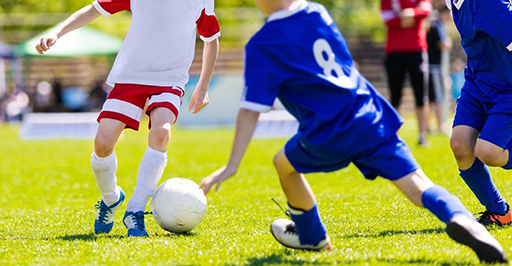1 What are normative transitions?

Normative transitions refer to the ‘within career’ changes that an athlete would normally be expected to face during their career. They can therefore be thought of as predictable transitions. In the next activity you will consider the wide range of normative transitions that athletes may face in their time as sports performers and the potential psychological impact of these.
Activity 1 Normative transitions
Make a list of some of the normative transitions that an athlete might experience during their sporting career. To help you with this, you may find it useful to think about your own experiences either as an athlete or as someone supporting an athlete.
Once you have compiled your list, select one of the transitions and reflect on the potential psychological challenges that this transition might bring about.
Discussion
The transitions that athletes may experience during their career can be considerable and will vary from athlete to athlete. Below are a few examples of normative transitions that an athlete might experience:
- moving from junior to senior level competition
- moving from part-time to full-time athlete
- moving from amateur to professional
- moving from senior to masters or veteran competition
- moving to a lower level due to age related decline
- change of coach.
This is not an exhaustive list and you may well have thought of many other examples that you or people around you have experienced. Obviously, not all athletes will experience all of the transitions identified in this list – the transitions an athlete will face during their career will depend on their personal circumstances and the level they compete at.
Even though these transitions are expected and can therefore be prepared for, they can still be challenging. For example, an athlete moving from junior to senior level may find the senior training and competition environment very different and difficult to adapt to. This was explored in a research study by Røynesdal et al.(2018) which examined the transition from youth to senior teams in professional football. They found that footballers making this transition often find things like managing the social dynamics and the competitiveness in the first team challenging as demonstrated by the quote below from one of the coaches in the study. The study concluded that young footballers need support to help them successfully navigate the transition from youth to senior level.
It is going out into an unfamiliar environment, dealing with the pressures of playing in men’s football where it is competitive, and it is playing for three points. People’s livelihoods and careers are on the line, there is a passionate support base and it is a much more challenging environment than youth level football.
Now you’ve looked at the normative transitions directly associated with sport, you’ll next explore them through a ‘lifespan perspective’, which takes a more holistic view.
